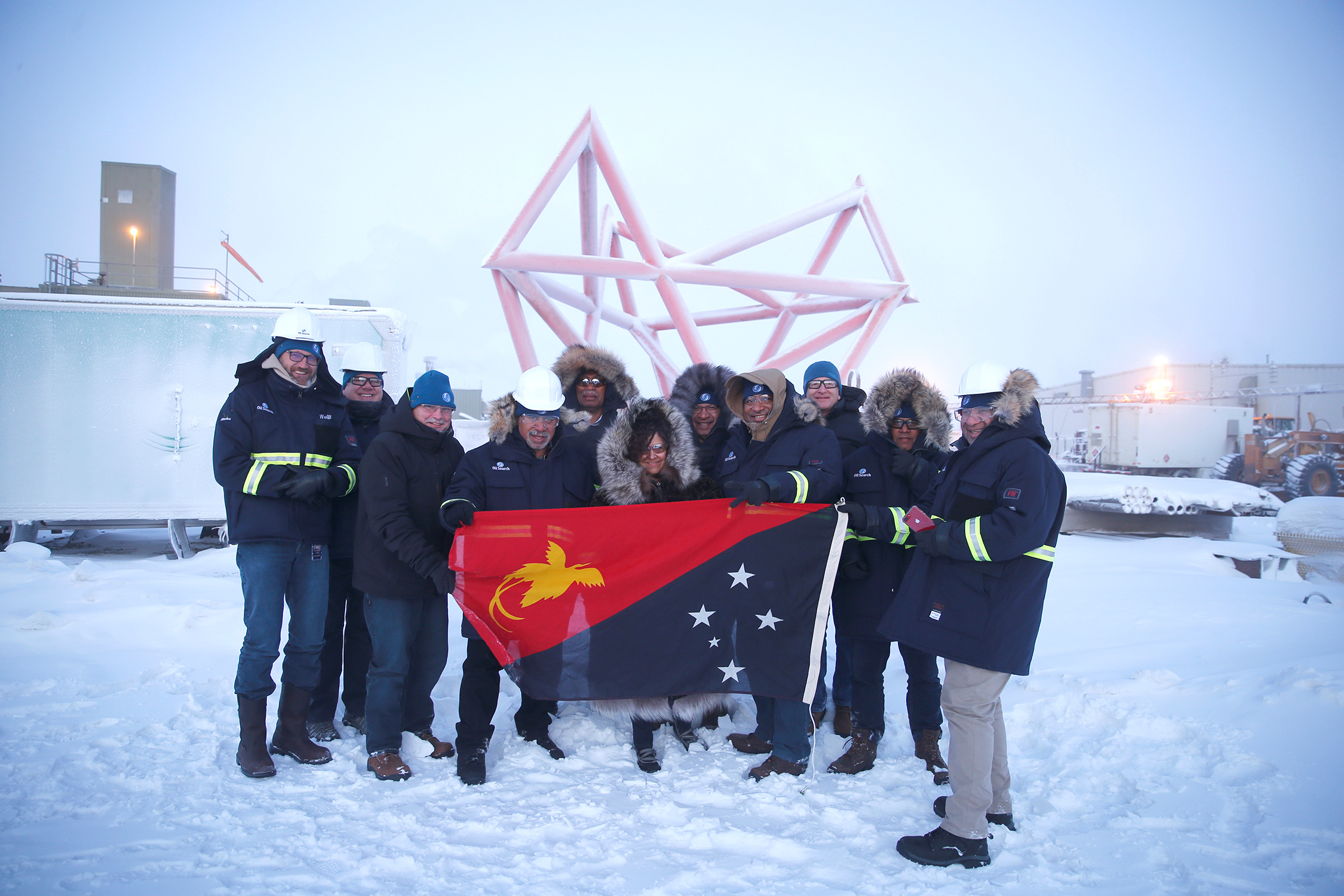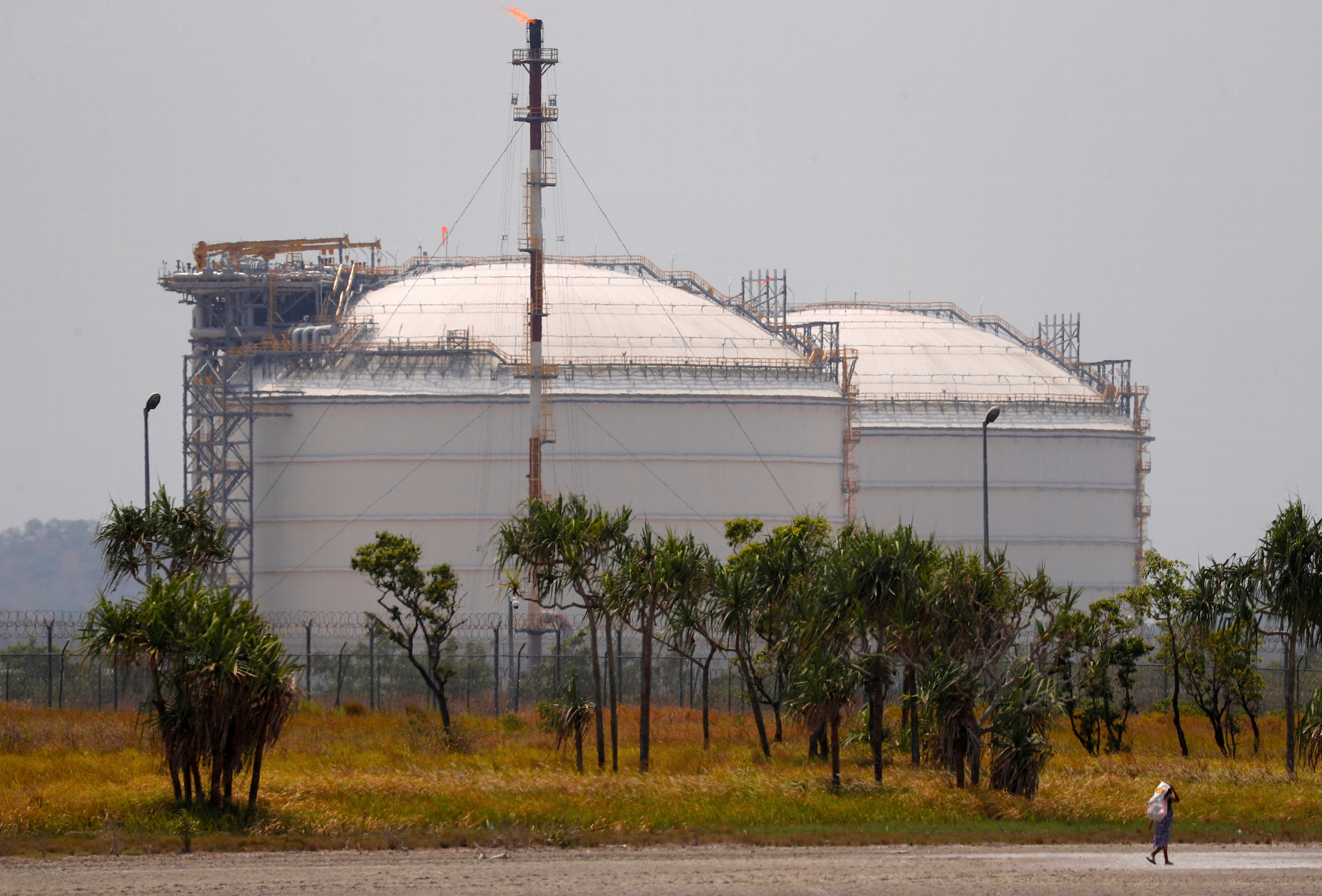Why Alaska’s Arctic is so important to a Papua New Guinea oil company
Port Moresby-based Oil Search, which recently hired former Trump administration official Joe Balash, needs a win in Alaska to offset difficulties at home.

MELBOURNE — With a giant gas project expansion in the tropical highlands of remote Papua New Guinea bogged down by politics, the country’s biggest company, Oil Search, is turning for growth to the other side of the world in Alaska’s Arctic.
Australia-listed but headquartered in Port Moresby, the A$10.7 billion ($7.2 billion) oil and gas producer has shaped the industry in Papua New Guinea over the past 90 years, helping drive development in the impoverished nation.
But the scale of its Papua New Guinea projects has left it dependent on decisions by giant international partners, while government demands for a bigger stake in resource projects may delay a planned $13 billion liquefied natural gas (LNG) expansion.
The confusion has opened a window for Oil Search to push ahead with a promising field in Alaska’s North Slope oil region that it bought into in 2018 and where it is the project operator.
Despite a steep learning curve, it plans to start producing as early as 2022 to help meet a target of doubling its annual output to around 60 million barrels of oil equivalent by 2025.
“It’s a perfect foil in terms of product diversity and geographic diversity. It’s an excellent asset in the sense that we can control it a lot better,” Oil Search Managing Director Peter Botten told Reuters in an interview.
Papua New Guinea jewels
Oil Search has parlayed its years in Papua New Guinea into a 29 percent stake in the PNG LNG project, led by Exxon Mobil Corp, and a 23 percent stake in the Papua LNG project, led by Total SA, and has been a key player behind a plan to unite the two projects and double the country’s LNG exports.
The projects are considered among the best in the world, blessed with low costs, high quality gas, existing infrastructure and proximity to Asia markets, factors that have long made Oil Search subject to takeover speculation.
To begin production at the planned expansion by 2024, Oil Search’s partners need to give the go-ahead next year on the two projects.
One hurdle was resolved last week when the state backed down from a bid to overhaul terms with Total, but talks with Exxon to develop the P’nyang gas field, which the companies had hoped to seal by June, are yet to happen.
“You’d think they’re likely to get there quicker on Alaska than they do on PNG at this stage,” said Andy Forster, a portfolio manager at Argo Investments, which more than doubled its holding in Oil Search in the year to June 2019.
Alaska pivot
In Alaska, Oil Search has spent $850 million buying a 51 percent stake in the Pikka prospect on the assumption it holds 500 million barrels of recoverable oil.
With Spain’s Repsol, it aims to produce 30,000 barrels a day of oil by as early as 2022 to start generating cash, then ramp up to 120,000 bpd in 2024.
Beefing up its small staff in Alaska, the company has hired a Trump administration official — Joe Balash, who oversaw oil and gas drilling on U.S. federal lands — as its external affairs head.
It is hoping to prove up reserves closer to 750 million barrels over the next six months, find more oil around its Nanushuk field and sell part of its stake to help fund the project.
“I think the development schedule we’re working up right now is one that’s very doable,” Botten said.
Consultants Wood Mackenzie like the project but are more skeptical about the timing because drilling in Alaska is restricted to the winter months, and delays of a month or two can set work back by a whole year.
“Alaska as a region is quite prone to delays,” said Wood Mackenzie analyst Rowena Gunn. “It’s very, very high cost, it’s a remote, tough environment to work in, and there’s a lot of environmental regulations.”
Still, the breakeven costs on the project were competitive with other big oil projects, given it is onshore and close to existing infrastructure.
“It’s really big, and it’s oil,” said Calgary-based Gunn, adding there was potential to tie discoveries into existing infrastructure.
Takeover or target?
Oil Search company spurned an $8 billion approach from Australia’s Woodside Petroleum Ltd four years ago, but its shares have since fallen due to a glut of LNG and uncertainty in PNG, making it potentially vulnerable.
“In the global sector they’re a small company but have material interests in global scale assets. That will always leave them having corporate appeal,” said Adrian Prendergast, an analyst at stockbroker Morgans, noting the PNG assets.
A banker suggested the Alaska assets are an unlikely fit and may be sold by any potential suitor, but Botten disagreed.
“It only makes the company much stronger,” he said. “I absolutely don’t see it as a poison pill.”
Additional reporting by Stanley Carvalho in Abu Dhabi.

